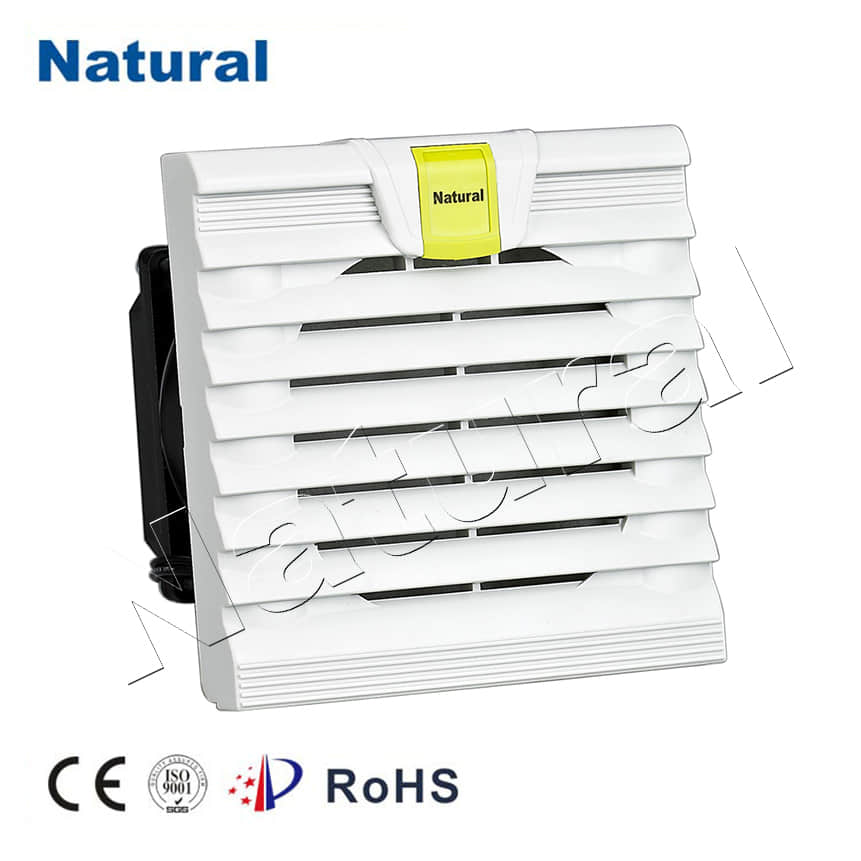In the fast-paced world of technology, electronic equipment and devices have become integral to our daily lives. From data centers to home entertainment systems, these devices are constantly running, generating heat in the process. Efficient cooling is paramount to ensure their optimal performance and longevity. One of the essential components in maintaining proper cooling within cabinets is the cabinet fan filter.

Cabinet fan filters serve as the first line of defense against dust, debris, and other contaminants that can accumulate within electronic cabinets. These particles, if not adequately managed, can impede airflow, hinder cooling mechanisms, and potentially lead to overheating, reducing the equipment's efficiency and lifespan. As a solution, cabinet fan filters play a pivotal role in safeguarding the delicate internal components of electronic devices. The primary function of a cabinet fan filter is to maintain a clean and dust-free environment within the cabinet enclosure. The filter acts as a barrier, preventing particles from entering while still allowing air to flow freely. By doing so, the filter ensures that the cooling system, comprising fans and other ventilation mechanisms, operates at its best. This, in turn, prevents the accumulation of heat and maintains an optimal operating temperature for the enclosed equipment.
The benefits of using cabinet fan filters extend beyond temperature regulation. Dust and debris can carry electrical charges and, when they accumulate, create the potential for short circuits or other electrical malfunctions. These issues not only disrupt the smooth functioning of the equipment but also pose safety hazards. Cabinet fan filters significantly mitigate these risks by minimizing the accumulation of such particles.
Selecting the right cabinet fan filter is crucial to ensuring its effectiveness. Filters are available in various materials, such as foam, mesh, and synthetic fibers, each with specific filtration efficiency levels. The choice depends on the environment and the type of equipment housed within the cabinet. High-density environments, such as manufacturing facilities, require filters with finer mesh to capture even the smallest particles. On the other hand, less demanding environments may benefit from filters with slightly lower filtration efficiency.
Regular maintenance of cabinet fan filters is essential for sustained performance. Over time, accumulated particles can clog the filter, reducing its effectiveness and hampering airflow. Therefore, a maintenance schedule should be established to clean or replace the filter as needed. Modern cabinet fan filters are designed with ease of maintenance in mind, allowing quick removal and reinstallation.
Integrating cabinet fan filters into the design of electronic cabinets has become a standard practice in industries where cooling and equipment protection are paramount. Data centers, telecommunications facilities, industrial automation setups, and even personal computer systems benefit from the implementation of these filters. As technology advances and equipment becomes more sensitive to temperature fluctuations, the role of cabinet fan filters becomes increasingly vital.
In conclusion, cabinet fan filters play a critical role in maintaining efficient cooling and extending the lifespan of electronic equipment. By acting as a barrier against dust and debris, these filters ensure that cooling mechanisms operate optimally, preventing overheating and potential malfunctions. The choice of filter material and regular maintenance are key factors in maximizing their effectiveness. As technology continues to evolve, the importance of cabinet fan filters in safeguarding sensitive electronic devices remains unwavering.
 28 items Patent
28 items Patent
 28 items Patent
28 items Patent
 28 items Patent
28 items Patent

